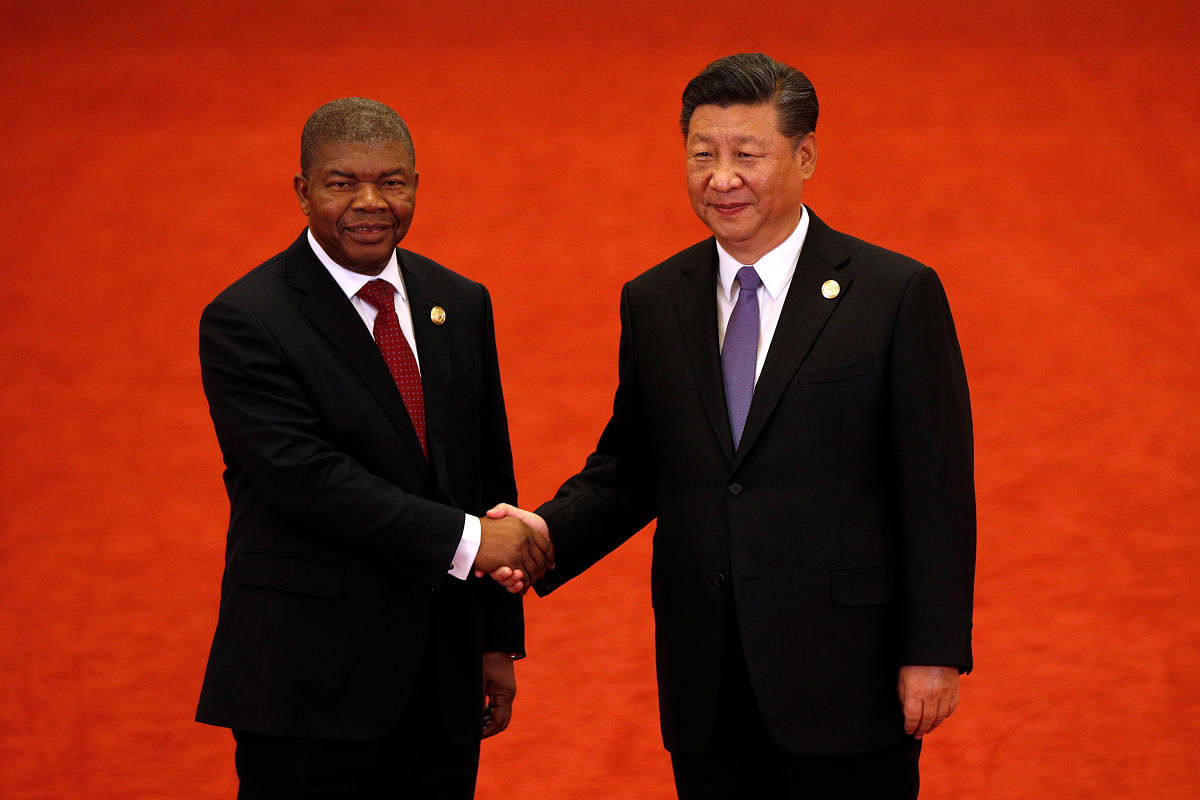
Chinese President Xi Jinping on Monday announced a whopping USD 60 billion in new development financing for the African nations as he sought to refute criticism that the massive funding under Beijing's Belt and Road Initiative (BRI) drawing the countries into a debt trap.
The funds - - announced on top of USD 60 billion that Beijing offered to the African nations in 2015 - - will be provided in the form of government assistance as well as investment and financing by financial institutions and companies.
The finances to be made under the BRI include USD 15 billion grants, interest-free loans and concessional loans, USD 20 billion credit lines, setting up of a USD 10-billion special fund for development financing and a USD 5 billion-special fund for financing imports from Africa, Xi said at the start of a two-day Summit of the Forum on China-Africa Cooperation (FOCAC) attended by the 53 heads of the African states and organisations.
The African nation heads and their officials gathered at the Great Hall of People to attend the meeting and gave a standing ovation to Xi as he made the financial commitments.
China is investing billions of dollars in aid and projects, making Africa the most focused destination under the BRI.
This is third-time China is hosting the Africa summit. The inaugural 2006 summit was held in Beijing and followed by another one in 2015 at Johannesburg.
At the Johannesburg summit, Xi announced USD 60 billion in funding support for infrastructure development in Africa.
"Africa is an extension of the Belt and Road development historically and naturally and an important participant in the initiative," Xi said.
Xi said China will implement eight major initiatives with African countries in the next three years and beyond, covering fields such as industrial promotion, infrastructure connectivity, trade facilitation, and green development.
A China-Africa economic and trade expo will be set up in China and Chinese companies will be encouraged to increase investment in Africa.
Chinese companies are also encouraged to make at least USD 10 billion investment in Africa in the next three years, he said.
He said that China will carry out 50 agricultural assistance programs, provide emergency humanitarian food aid amounting to USD 147 million to African countries affected by natural disasters, and send 500 senior agricultural experts to Africa.
He also said that China will work with the African Union to formulate a China-Africa Infrastructure Cooperation plan and support Chinese companies in taking part in Africa's infrastructure development by way of investment-construction-operation or through other models.
China’s growing clout in Africa has drawn criticism that more African nations are getting to Chinese debt trap.
The only African country still remained outsides Beijing’s fold was the tiny kingdom of Swaziland which is still with Taiwan spurning China’s overtures
Speaking against criticism that China doesn’t match its public announcements with the spending on the ground, Xi said China has honoured its 2015 promise to provide Africa with funding support totalling USD 60 billion.
The financing has been either delivered or arranged, he said.
The Chinese projects in Africa include the Ethiopia-Djibouti railway and Kenya's standard gauge railway from Mombasa to Nairobi besides major highways and bridges connecting various countries.
In an apparent dig at the criticism that China is driving smaller countries into its fold with debt trap diplomacy by doling out huge loans, Xi said China followed a "five-no" approach in its relations with Africa - - No interference in African countries' pursuit of development paths that fit their national conditions, no interference in internal affairs, no imposition of China's will, no attachment of political strings to assistance and no seeking of selfish political gains in investment and financing cooperation.
"No one can undermine the great unity between the Chinese and African people," he said.
In a bid to refute criticism that China is importing only raw materials from Africa, Xi said Beijing will increase imports, especially non-resource products, from Africa and support African countries in participating in China International Import Expo being held in November in Shanghai.